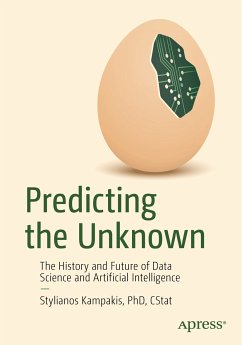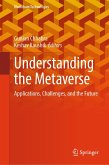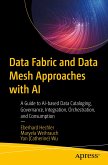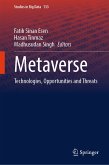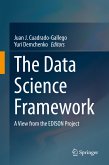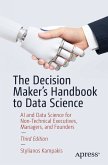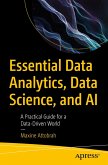As a society, we're in a constant struggle to control uncertainty and predict the unknown. Quite often, we think of scientific fields and theories as being separate from each other. But a more careful investigation can uncover the common thread that ties many of those together. From ChatGPT, to Amazon's Alexa, to Apple's Siri, data science, and computer science have become part of our lives. In the meantime, the demand for data scientists has grown, as the field has been increasingly called the "sexiest profession."
This book attempts to specifically cover this gap in literature between data science, machine learning and artificial intelligence (AI). How was uncertainty approached historically, and how has it evolved since? What schools of thought exist in philosophy, mathematics, and engineering, and what role did they play in the development of data science? It uses the history of data science as a stepping stone to explain what the future might hold.
Predicting the Unknown provides the framework that will help you understand where AI is headed, and how to best prepare for the world that's coming in the next few years, both as a society and within a business. It is not technical and avoids equations or technical explanations, yet is written for the intellectually curious reader, and the technical expert interested in the historical details that can help contextualize how we got here.
You will:
Predicting the Unknown provides the framework that will help you understand where AI is headed, and how to best prepare for the world that's coming in the next few years, both as a society and within a business. It is not technical and avoids equations or technical explanations, yet is written for the intellectually curious reader, and the technical expert interested in the historical details that can help contextualize how we got here.
You will:
- Explore the bigger picture of data science and see how to best anticipate future changes in that field
- Understand machine learning, AI, and data science
- Examine data science and AI through engaging historical and human-centric narratives
Dieser Download kann aus rechtlichen Gründen nur mit Rechnungsadresse in A, B, BG, CY, CZ, D, DK, EW, E, FIN, F, GR, HR, H, IRL, I, LT, L, LR, M, NL, PL, P, R, S, SLO, SK ausgeliefert werden.

